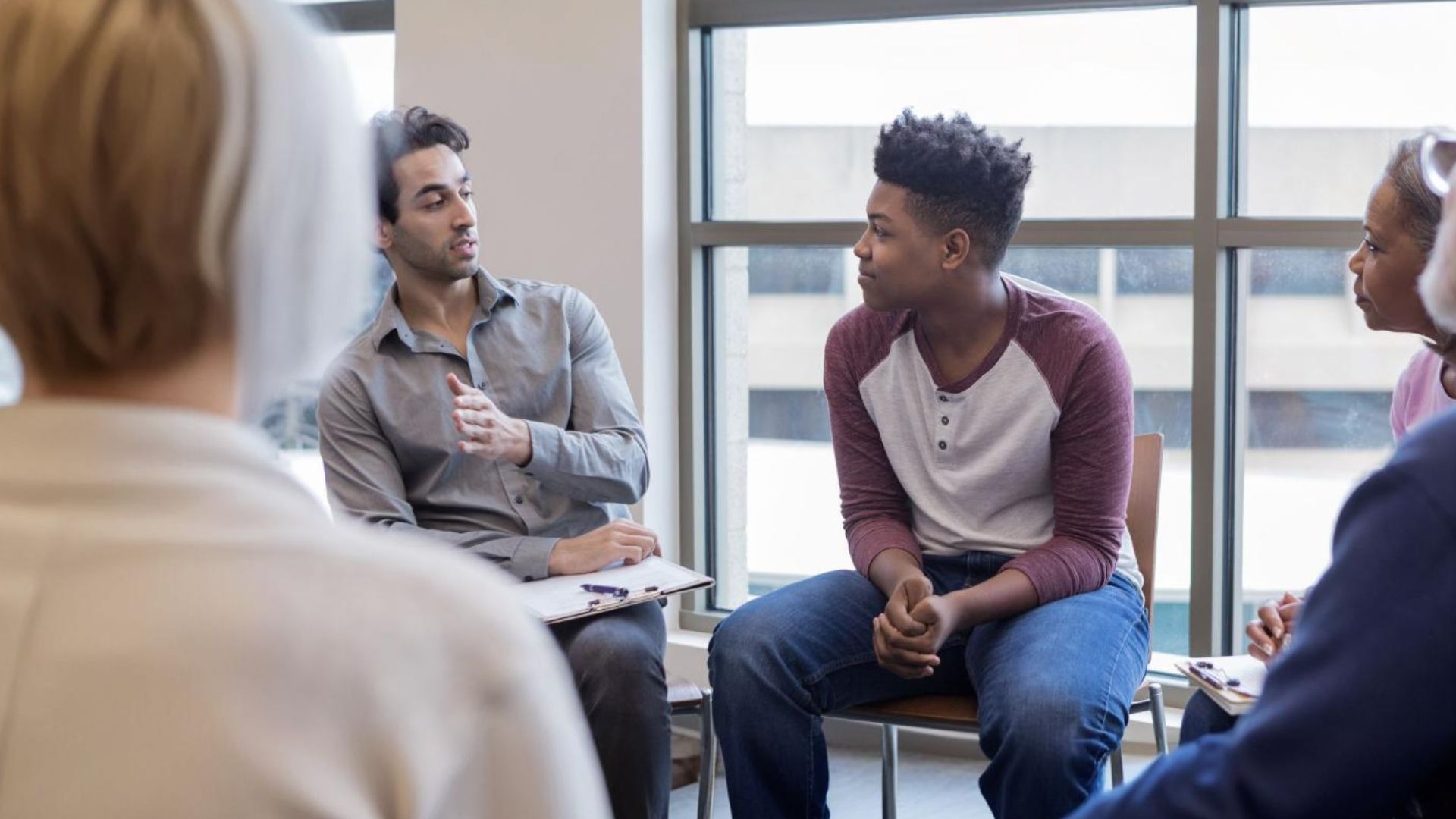At White River Academy, we offer a specialized Adolescent Cognitive Behavioral Therapy (CBT) program designed to help teenage boys navigate emotional and behavioral challenges. Our Utah-based facility provides a structured yet compassionate environment where teens can develop essential coping skills and build resilience.
CBT is an evidence-based approach that focuses on identifying negative thought patterns and replacing them with healthier perspectives. This therapy is particularly effective for adolescents struggling with anxiety, depression, trauma, and behavioral issues. Through guided sessions, teens gain the tools they need to regulate emotions, improve decision-making, and foster positive personal growth.
Cognitive Behavioral Therapy (CBT) is a structured, goal-oriented form of psychotherapy that helps teenagers recognize and change harmful thought patterns and behaviors. Unlike traditional talk therapy, this therapy is highly interactive and focuses on present issues rather than past experiences.
Teens participating in CBT engage in practical exercises such as cognitive restructuring, mindfulness techniques, and problem-solving strategies. These exercises help them develop healthier coping mechanisms and improve emotional regulation.
At White River Academy, our trained therapists work closely with each client, providing personalized guidance to help them build confidence, resilience, and a positive outlook on life.
Our adolescent CBT program offers a wide range of benefits for boys struggling with mental health and behavioral challenges, including:
By integrating CBT into our treatment approach, we empower teens to take control of their thoughts, emotions, and behaviors for lasting personal growth.
Why Choose us?
Our Teen CBT program at White River Academy is tailored to meet the specific needs of adolescent boys, offering a structured and supportive environment for healing. Using evidence-based behavior therapy for teenagers, we help teens challenge negative thought patterns and develop healthier responses to stress and adversity.
Our program includes individualized therapy sessions, group CBT workshops, and family involvement to create a comprehensive treatment plan. Led by experienced therapists, our CBT addresses various issues, including anxiety, depression, trauma, and impulsivity, ensuring that each adolescent receives the care they need.
We combine expert care with a compassionate approach, helping young boys gain the necessary tools to thrive. Our program is designed to empower young individuals with long-term coping strategies, fostering self-awareness, emotional balance, and personal success in a safe and nurturing environment.

17 years
Successfully Helping Families
15 years
Treating Sex Addiction & Compulsivity
92%
Graduation Success Rate
10 years
Of Family Advancement & Foster Care Experience
200 +
Community Service Improvement Projects Completed
17 years
Successfully Helping Families
15 years
Treating Sex Addiction & Compulsivity
92%
Graduation Success Rate
10 years
Of Family Advancement & Foster Care Experience
200 +
Community Service Improvement Projects Completed
We understand that seeking treatment for your son can raise many questions. To help you make informed decisions, we’ve compiled answers to some of the most frequently asked questions about our programs and our approach to treating teenagers.
If you don’t find the information you’re looking for, please don’t hesitate to contact our admissions team for personalized assistance.
The duration of CBT for teenagers varies depending on the individual and the specific challenges they are facing. However, many clients begin noticing improvements in their thoughts, emotions, and behaviors within 6 to 12 weeks of consistent therapy. Since CBT for adolescents is goal-oriented and skills-based, progress depends on active participation and practice of learned techniques outside of sessions. Long-term success is often supported through continued reinforcement, booster sessions, or integration with other therapies as needed.
Yes, CBT for adolescents is particularly beneficial for teens struggling with co-occurring disorders, such as addiction, anxiety, depression, or trauma. Since CBT addresses negative thought patterns that contribute to both substance use and mental health challenges, it helps youngsters develop a more balanced mindset. By treating the underlying emotional and psychological issues, CBT supports a more sustainable and holistic recovery.
Unlike traditional talk therapy, which often explores past experiences and emotions, Cognitive Behavioral Therapy is solution-focused and action-oriented. It emphasizes present thoughts and behaviors, helping teens develop specific coping mechanisms for real-life challenges. CBT also includes homework assignments and skill-building exercises, encouraging teens to practice techniques in their daily routines, which leads to more lasting and measurable outcomes.
Yes, parental involvement can significantly enhance the effectiveness of CBT for adolescent boys. While therapy sessions focus on the client`s personal growth, parents may be included in family therapy sessions or provided with guidance on how to support their child’s progress at home. Understanding CBT principles allows parents to reinforce learned strategies, encourage positive behaviors, and create a supportive environment that promotes long-term success.
CBT helps to develop relapse prevention strategies by teaching clients how to recognize and manage high-risk situations that may lead to substance use. They learn to identify triggers, such as stress or social pressure, and replace harmful behaviors with healthier coping mechanisms. By practicing mindfulness, problem-solving, and emotional regulation, adolescents gain the skills needed to resist cravings and maintain their recovery over time.